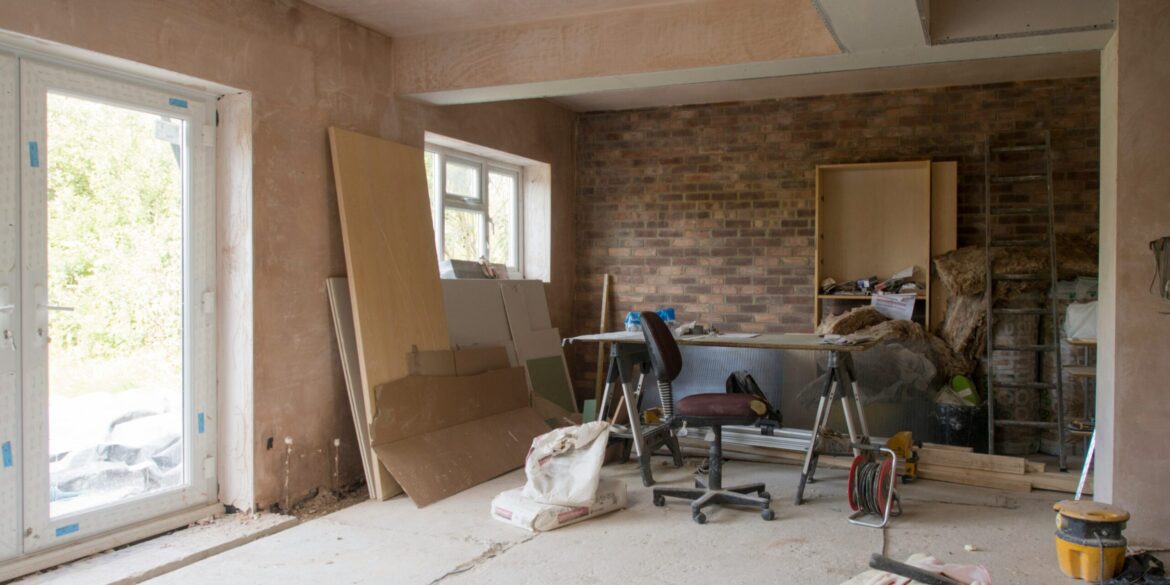As the real estate market in 2025 begins to cool, homeowners are increasingly choosing to renovate rather than relocate. With the prices of new homes rising and the mortgage market still in flux, many are opting to invest in improving their current properties. This surge in home renovations is being driven by a desire for more personalized, functional, and energy-efficient living spaces.
Rising Costs and Stagnating Home Prices Push Homeowners Toward Renovation
In 2025, rising home prices and inflation are causing many buyers to reconsider purchasing new homes. According to a recent study by the Joint Center for Housing Studies at Harvard University, the number of home renovation projects has increased by 12% from the previous year, as homeowners look for ways to enhance their living conditions without the burden of escalating home prices.
For instance, in cities like San Francisco and New York, the housing market remains out of reach for many, leading homeowners to renovate rather than buy new. The National Association of Home Builders (NAHB) reports that homebuyers in these areas are waiting out the market uncertainty, with many choosing to remodel their existing homes to accommodate evolving needs.
Kitchens and Bathrooms: The Most Popular Renovations
In 2025, two areas of the home have become the focal points for renovation: kitchens and bathrooms. According to Remodeling Magazine’s annual “Cost vs. Value” report, kitchen remodels continue to provide the best return on investment, with the average return hovering around 70-75%. Homeowners are increasingly opting for open-concept kitchens that are more integrated with dining and living spaces, making the home more adaptable for social gatherings and family life.
The bathroom has also become a high-priority area for renovation. Homeowners are investing in spa-like bathrooms with modern amenities like soaking tubs, rainfall showerheads, and advanced lighting systems. Energy-efficient fixtures are in demand, including low-flow toilets and LED lighting, which reduce water and energy consumption.
Energy-Efficiency and Smart Home Technology Take Center Stage
The trend toward energy-efficient home upgrades is gaining significant traction in 2025. As energy costs rise and environmental awareness grows, many homeowners are opting to make their homes more sustainable by installing solar panels, upgrading insulation, and replacing old appliances with energy-efficient models. The U.S. Department of Energy has noted that energy-efficient home improvements can reduce a home’s utility bills by as much as 30%.
Smart home technology is also becoming a key feature in many renovations. Homeowners are adding systems such as smart thermostats, smart lighting, and home automation systems that allow them to control various functions of their homes remotely. The integration of these technologies not only makes homes more convenient and comfortable but also adds to their value, with some studies showing that homes with smart features can sell for up to 5% more than homes without them.
The Popularity of Outdoor Living Spaces
With more people spending time at home than ever before, outdoor living spaces have become a priority for many homeowners. This trend has accelerated in 2025 as homeowners seek to expand their living areas and create outdoor environments that are just as functional and comfortable as indoor spaces. According to a report from the American Institute of Architects (AIA), nearly 50% of homeowners are choosing to invest in landscaping, outdoor kitchens, and patios.
These outdoor renovations allow homeowners to extend their living space and create areas for relaxation, dining, and entertaining. Fire pits, outdoor kitchens, and covered patios are among the most sought-after features, particularly in states with mild climates like California, Texas, and Florida.
DIY vs. Professional Renovations: Who Is Doing the Work?
While the DIY trend has been popular for years, 2025 marks a shift toward professional help, especially for larger renovation projects. According to a survey by the Home Improvement Research Institute (HIRI), 70% of homeowners are now hiring professional contractors for major renovations, including kitchen remodels and home expansions, as opposed to attempting these projects themselves.
This shift can be attributed to the growing complexity of home renovations. Many homeowners now recognize that specialized skills, such as electrical work, plumbing, and structural changes, require expertise that DIY solutions can’t provide. Additionally, with the availability of financing options and home improvement loans, homeowners are increasingly willing to invest in professional services to achieve the best results.
Financing and Home Renovation Loans
One of the key factors driving the renovation boom in 2025 is the availability of financing options. Home equity lines of credit (HELOCs) and renovation loans like the FHA 203(k) loan are helping homeowners finance their projects without the need to take on a second mortgage. According to the Home Mortgage Disclosure Act (HMDA), the number of renovation loans in 2025 has seen a 14% increase compared to the previous year, signaling growing confidence in the market.
These loan options allow homeowners to borrow against the equity in their home, using the funds to pay for major renovations. As home prices continue to increase, leveraging home equity has become an attractive option for many homeowners who want to improve their living spaces without selling their property.
The Future of Home Renovations
As 2025 progresses, it is clear that home renovations will continue to be a priority for many Americans. With the real estate market facing uncertainty, homeowners are focusing on making their homes more comfortable, sustainable, and valuable. Whether it’s upgrading to smart home technology, creating a home office, or expanding outdoor living spaces, the trend toward home renovations is not just a passing fad—it’s a long-term shift in how people view their homes.
As new technologies emerge and sustainability becomes even more critical, the home renovation market will likely continue to evolve, offering homeowners new ways to enhance their properties and make them more adaptable to changing lifestyles.

